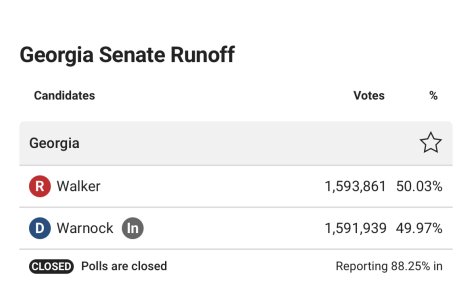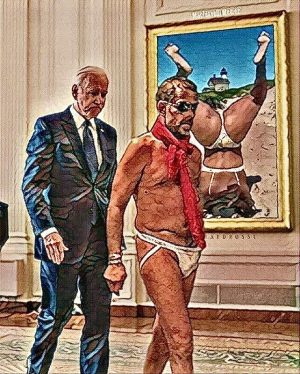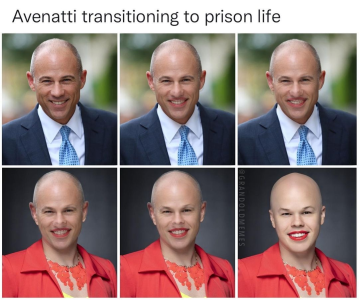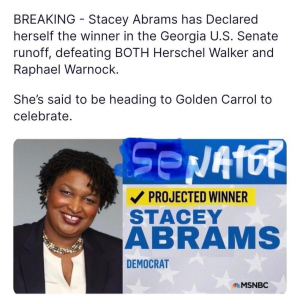Musk and Trump very similar prototype in the play......not on our side......at all......and obviously so at this pointSo, to repeat my question, Musk fired her but kept all of her lawyers? That makes no sense. That makes him look like a total moron.
-
In Memory of Rebarcock.
As we navigate life without Pat 'Rebarcock.' Flood, who passed on Sept 21, 2025, we continue to remember the profound impact he had on our community. His support was a cornerstone for our forum. We encourage you to visit the memorial thread to share your memories and condolences. In honor of Pat’s love for storytelling, please contribute to his ‘Rebarcock tells a story’ thread. Your stories will help keep his spirit alive among us.
You are using an out of date browser. It may not display this or other websites correctly.
You should upgrade or use an alternative browser.
You should upgrade or use an alternative browser.
Master Thread Dance Your Cares Away/Fraggle/Law Abiding Citizens
- Thread starter Bryan74b
- Start date
Master Threads.

It's All Making Sense - Elon Musk Has No Idea What He Purchased with Jack's Magic Coffee Shop... - The Last Refuge
DHS has been in ever increasing control of Twitter since the public-private partnership was formed in 2011/2012.
Newsmax called it for the dems 30 min agoFingers crossed. Come on Herschel! Hoping for limited Atlanta Fuckery.
View attachment 153691
Well, fuck! I’d like to export Atlanta to another state perhaps New York. I fucking hate that cityNewsmax called it for the dems 30 min ago
Just saw the race called for Warnock. GA is fucking assholeFingers crossed. Come on Herschel! Hoping for limited Atlanta Fuckery.
View attachment 153691
Sorry man.Well, fuck! I’d like to export Atlanta to another state perhaps New York. I fucking hate that city
Lol. YupJust saw the race called for Warnock. GA is fucking asshole
Just saw the race called for Warnock. GA is fucking asshole
Atlanta is the asshole and Fulton is the sphincter.
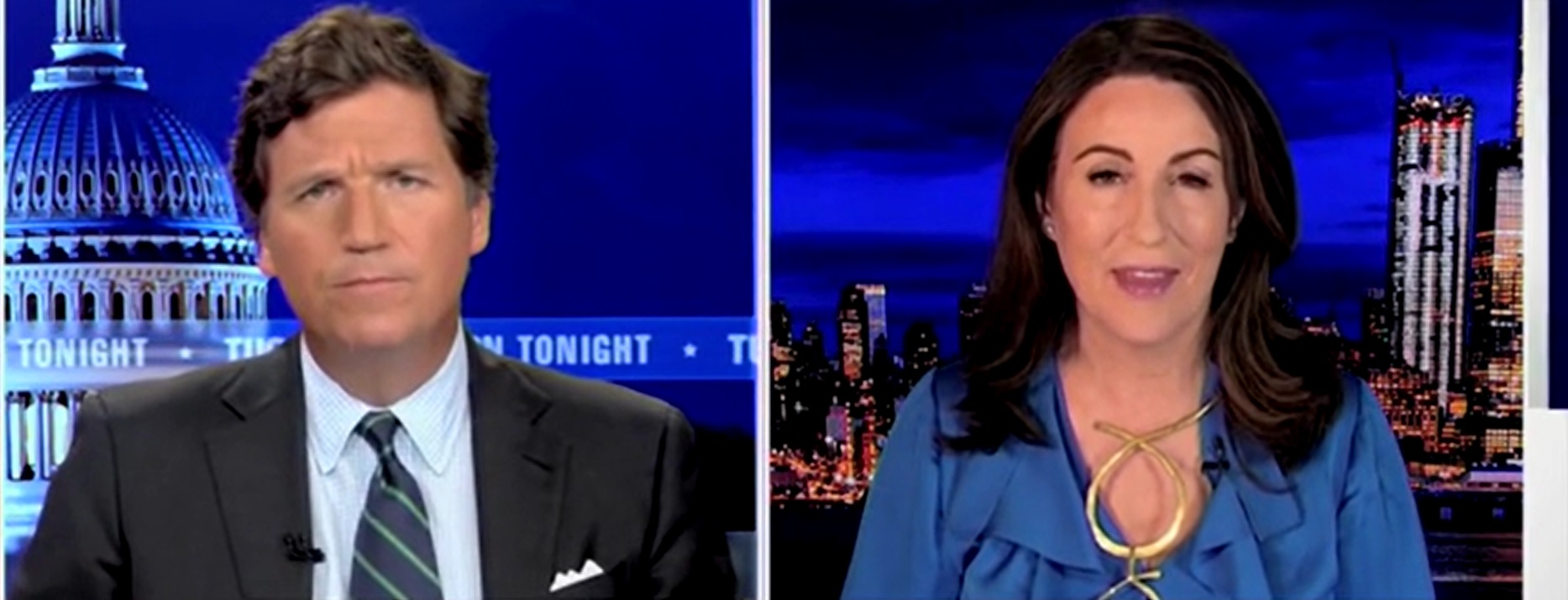
Ex-FBI Lawyer Fired By Musk Had ‘Biggest Motive’ To ‘Suppress’ Hunter Biden Laptop Story, Guest Tells Tucker Carlson
James Baker, who Elon Musk fired from Twitter Tuesday, had the “biggest motive” to suppress the report on Hunter Biden’s laptop, a New York Post reporter said.
Fingers crossed. Come on Herschel! Hoping for limited Atlanta Fuckery.
View attachment 153691
It goes from essentially tied to Warnock ahead by 60,000. The Fulton County Fix was in again.
By my math still around 400,000 votes outstanding to be fucked with.Fingers crossed. Come on Herschel! Hoping for limited Atlanta Fuckery.
View attachment 153691
Sorry but this is nonsense. We either have laws and rules and we are governed by the Constitution, or we are not. Black and white. If you take them to court and you WIN you set a precedent that can then be legally used against you. You effectively legitimize them. Throwing the baby out with the bathwater.
The country you're talking about no longer exists. That baby and bathwater are long gone.
We're mostly governed by a cabal of globalists, other than the freedoms we have in certain states, and make no mistake about it, they're on the move against those remaining freedoms as we speak. No, we don't have real laws and we aren't governed by the constitution any longer. Outside of those states, our laws are misapplied against globalist enemies, or not at all.
Not sure if real.
Federal law generally prohibits disenfranchisement of people based on race, age, national origin, sex, marital status, disability, pregnancy, gender, sexual orientation and disability, along with other categories.
Federal law does not prohibit disenfranchisement based on ideology, political affiliation or outlook. If a state or local election system wants to block voters based on affiliation or ideology, they can…. as long as it doesn’t have a disparate impact on the protected category.
If a state legislature wanted to assign 1/2 value to each Republican vote, there is nothing in the constitution that would prohibit that rule.
If a state election outcome results in the loss of 50% of the republican votes in the local or state election, there is nothing in the federal law that would correct the issue. The state is responsible for certifying the results.
The supreme court will not hear an election controversy issue or legal challenge based on certified results from states. The constitution permits states to conduct their own elections, and as long as federal laws are not violated, the state certification ends the discussion. This is the great dichotomy within U.S. election around election manipulation by a state or local election officials. There is no federal recourse if no federally protected category was adversely impacted.
The DNC argues election disenfranchisement, rules, dates, times, locations, etc based entirely on protected federal categories, ie. the date or method of the election has an adverse impact to a specifically protected category of racial minorities. This is the typical DNC lawsuit.
Um, that's false. There is zero reference to "protected classes" in the Constitution. There is, however, a direct Constitutional ban on Bills of Attainder.
Shooters shoot.And why would he send one of his right hand men to assassinate Roth at the airport, knowing it was almost certainly a one way ticket?
They all look fat as fvck too
Couple that with an RNC that refuses to act accordingly and/or doesn’t really want to win. RNC/McConnell gave up the senate just to spite Trump.
Hell, Kemp did more than McConnell & co trying to help win here & they pulled funding from Az to prop up Murkowski in Alaska against another R.
Last edited:
Similar threads
- Replies
- 13
- Views
- 611
- Replies
- 6
- Views
- 350
- Replies
- 0
- Views
- 2K
- Replies
- 56
- Views
- 5K

